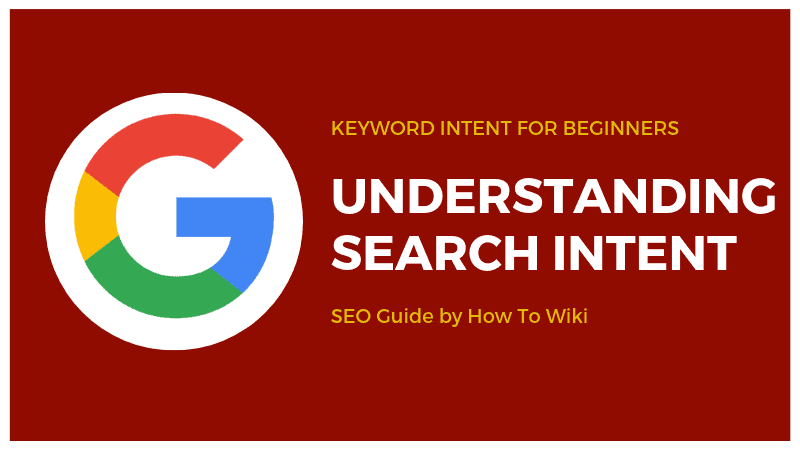Planned to start a blog of your own? Have you read carefully about Search Intent and why is it necessary? If not, you must start right now, right here. Search or Keyword Intent is basically how you are selecting what must be put on your blog and whatnot. To be straight forward, by doing the correct research you are making it possible for your blog to reach to the audience and earn respect in the market. Not only you will be able to attract your target audience, but the conversion rate will also be higher. Already have a blog but weren’t sure about this? Go and optimize your posts after reading this article.
What is Search Intent/Query?
Search query or intent is what a user is looking for on a search engine. The keywords or search phrases that potential clients/customers/readers put up in the search bar of a search engine which lead them to various platforms that will provide them what they are looking for. Search results are based on what their goal is, where they want to reach, and what they want to see. They could be looking for a place to buy iPhones, so the search result will show them the best websites/online marketplaces selling the iPhone.
Importance Of Search Query
If you are thinking that how does that benefit us – the bloggers? Well, the most important thing in a bloggers work is satisfying the needs of the target audience. And how can you fulfill that need? That could be done when you give them exactly what they asked for. So, if you follow and research a little about the search intent of a user regarding any topic, you will be able to reach out more. What do we get from this? Optimizing your content according to the intent of the users is very important from SEO point of view too.
As an entrepreneur, if you want to convert more customers than your competitors, then you need to provide them the content based on their requirements, not based on what you can write.
Let’s see an example of this. Suppose someone, say X opened her browser and looked up “how to use shampoo”. Now, what do you think that the results should be? Does she want a long list of shampoos that she could use? Would she like if she got contact information of salons where shampoo service is provided? OR Is she looking for a blog where she could find a tutorial on how she should apply shampoo on her hair? Did you choose the third option? Of course, she is looking for a blog. So, her intent is to find an informational post. On the basis of the requirement of users, the search question intent is classified in 3 different types. Let’s see what they are.
Types Of Google Search Queries
As I pointed out, there are three types of search queries or intents. This is based on what the users look for on search engines.
- Informational Searches
- Transactional Searches
- Navigational Searches
Informational Searches – What do they mean?
These searches are those which you just type in to find the meaning/information/tutorial on any topic. Suppose you are looking for a way to clean that greasy stain on your white shirt, what will you type in Google search bar? I know I would type “how can I remove pasta sauce stain from white shirt” or something straight like “greasy stain what to do?” I would get results based on this query. And how does the Search Engine know which results to show? It will fetch the most relevant webpages which will contain the given keyword or near to it. Ranking for such informational search keywords is an easy way to increase your organic keywords better than your competitors.
Transactional Searches – What are they?
When a user goes to a search engine to buy a certain product or service, that search is known as Transactional search.
When a user is going to make a purchase, or they want to compare prices/products they will want to look at pages who provide them correct prices, specifications, and ways to buy those products. For example, there is Amazon where users can find these products to buy. But those sites which provide information plus links which lead to such online market websites are the once providing results to help consumers in such queries.
So what kind of keywords do a user use for such an intent?
Suppose someone, sat Y has to buy a new laptop for work. They might type in the query box “Best laptop for office under $1000” or “buy laptops” or “Apple MacBook Pro buy”.
These types of searches require very less amount of optimization as compared to others. When a user has there Destination in mind and knows which website they want to access, their intent is called Navigational. We could say they are asking Google to give them the right path to a certain website whose website address they don’t know.
For example, if you type in “How To Wiki” in the search bar, it means that you are looking for this website but might not remember the website address correctly.
********
Now which type of results will satisfy the need of a user is all up to SERP. If they are looking for a definition, a Snippet will be best; but if they are looking up details about a University, then a knowledge graph will cut the deal. Similarly, if someone looks up “latest movies” then the Carousels element will show up.
Tell me, which of the various search query intent does your site serve?
